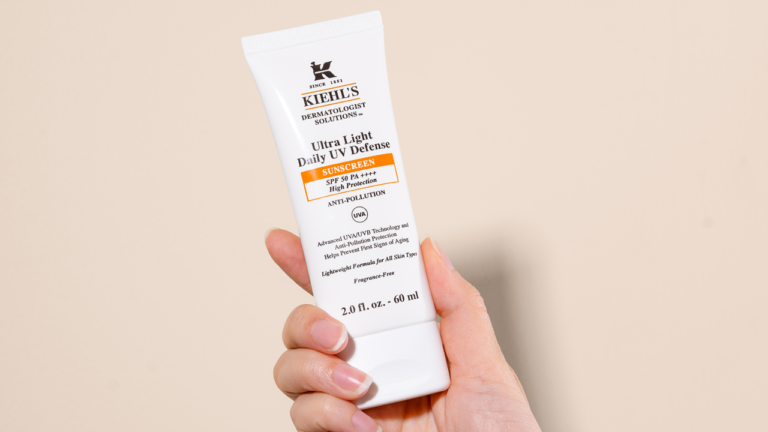Sunscreen is the most important element in any skincare routine. Without protection from UVA and UVB rays, early signs of aging such as dark spots, wrinkles, and loss of skin elasticity can appear much faster. However, not all sunscreens work the same way.
There are two main categories of sunscreen that are often compared: chemical sunscreen and physical sunscreen. Both provide protection against the sun, but they differ in mechanism, texture, and comfort of use. Understanding the difference between chemical and physical sunscreen will help you find the formula that best suits your skin’s needs.
Table of Contents
ToggleDifferent Ways of Working
The fundamental difference between chemical sunscreen and physical sunscreen lies in how they block UV rays. Chemical sunscreens contain active ingredients such as avobenzone, octocrylene, or homosalate that work by absorbing UV rays and converting them into heat before releasing it from the skin. Because of this nature, chemical sunscreens generally require about 15–30 minutes after application to become effective.
Meanwhile, physical sunscreens—also known as mineral sunscreens—rely on zinc oxide or titanium dioxide to reflect UV rays so they do not penetrate the skin’s surface. Unlike chemical sunscreens, physical sunscreens work instantly once applied.
Texture and Finish
In terms of texture, chemical sunscreens are usually lighter, easy to spread, and leave almost no white cast. This is why many people choose chemical sunscreens for daily use or as a base under makeup.
On the other hand, physical sunscreens have a thicker consistency and tend to leave a white cast, although modern formulas from high-end brands are now much more elegant. Many luxury physical sunscreens are now formulated with smoother textures that feel comfortable on the skin while delivering a sheer finish that does not disrupt your appearance.
Comfort and Skin Compatibility
Chemical sunscreens are often the choice for those who want a lightweight, long-lasting formula that feels comfortable throughout the day. However, their active chemical properties can sometimes cause irritation, especially for sensitive skin.
In contrast, physical sunscreens are known to be gentler, making them recommended for sensitive skin and even children. That said, they may feel heavier on oily skin and tend to wear off more easily with sweat or friction.
Pros and Cons
Both chemical and physical sunscreens come with their own strengths and weaknesses. Chemical sunscreens stand out for being lightweight, transparent, and ideal for daily wear, but they require time to become effective and may trigger reactions in sensitive skin. Physical sunscreens, on the other hand, provide instant protection and greater stability under UV exposure, while also being safe for sensitive skin. However, their thicker texture can sometimes feel heavy and potentially leave a white cast, although modern formulas have become far more sophisticated.
Recommended Chemical and Physical Sunscreens
If you are looking for real-life examples of chemical and physical sunscreens, Luxehouze Beauty offers a curated selection of premium sunscreens tailored to your skin’s needs.
For the chemical sunscreen category, Kiehl’s Dermatologist Solutions Ultra Light Daily UV Defense SPF50 PA++++ 60ml is a worthy option. This sunscreen has a lightweight texture with a matte finish, while also helping to keep the skin hydrated. Formulated with advanced anti-pollution technology and a combination of Mexoryl SX™ and Mexoryl XL™, it provides broad-spectrum protection against UVA and UVB rays, making it effective in shielding the skin from early signs of aging and excess melanin production caused by sun exposure.
Meanwhile, for the physical sunscreen category, La Mer The SPF 50 UV Protecting Fluid offers high-quality mineral filters with a refined texture that delivers instant protection. This product not only shields the skin from UV rays but also nourishes and helps maintain moisture.
The choice between chemical and physical sunscreen does not have a single right answer. It all depends on your skin’s needs and personal preference. If you want a lightweight sunscreen that feels almost invisible on the skin, a chemical sunscreen may be the best solution. However, if your skin tends to be sensitive or requires instant protection, a physical sunscreen may be more suitable.
The most important thing is consistency: wear sunscreen every day to ensure your skin stays healthy, protected, and youthful.
So, which sunscreen do you feel is most suitable for your daily use? Discover your premium sunscreen of choice only at Luxehouze Beauty.













